Maggots in Dogs
Maggots in dogs, also known as myiasis, is a distressing condition that can affect our beloved four-legged companions. It occurs when fly larvae infest a dog's skin, wounds, or body orifices. While maggots can be found in various environments, they pose a significant health risk when they invade a dog's body. In this article, we will explore the causes, symptoms, treatment, and prevention of maggots in dogs.

Can Dogs Have Maggots in Their Poop?
Yes, it is possible for dogs to have maggots in their poop, although it is not a common occurrence. Maggots are the larvae of flies, and they can be found in decaying organic matter, including animal feces. If a dog's poop is left in an environment where flies can access it, such as in a backyard or an area with poor sanitation, flies may lay their eggs on the poop, and the eggs can hatch into maggots.
Additionally, maggots in a dog's poop could indicate that the dog has a gastrointestinal issue or an open wound that is attracting flies. In such cases, it's important to consult with a veterinarian to address the underlying problem and provide appropriate treatment for your dog.
Is It Normal to Find Maggots in Dog Poop?
No, it is not normal to find maggots in a dog's poop. While maggots can infest feces under certain conditions, such as when feces are left in unsanitary environments where flies can lay their eggs, it is not a typical or healthy occurrence.
The presence of maggots in a dog's poop may indicate a problem with sanitation, hygiene, or the dog's overall health. It could suggest that the dog's living area is not being kept clean, or it might be a sign of an underlying gastrointestinal issue or an open wound that is attracting flies.
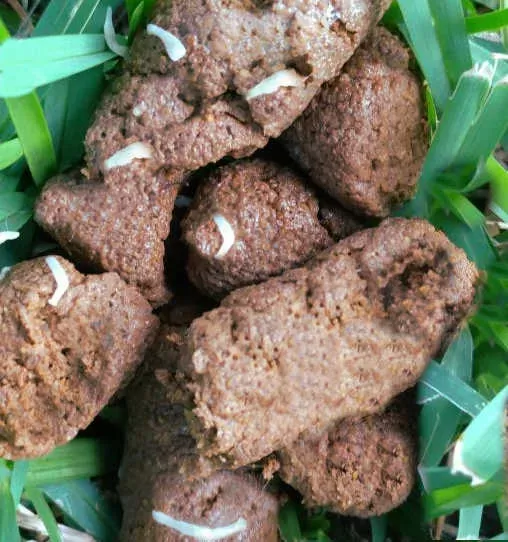
Maggots vs Worms in Dog Poop
Maggots and worms in dog poop are two different things, and they can indicate different issues or conditions:
Maggots:
Maggots are the larvae of flies and are typically found in decaying organic matter, including animal feces.
If you find maggots in your dog's poop, it often indicates that the feces have been left in an unsanitary environment where flies were able to lay their eggs.
Maggots in dog poop are not normal and suggest poor sanitation or hygiene.
It's essential to clean up your dog's waste promptly and maintain a clean living environment to prevent flies from laying eggs on the feces.
Worms:
Worms in dog poop typically refer to intestinal parasites or worms that infest a dog's gastrointestinal tract.
Common types of intestinal worms in dogs include roundworms, tapeworms, hookworms, and whipworms.
The presence of worms in your dog's poop may indicate a parasitic infection.
Symptoms of a worm infestation in dogs can include diarrhea, vomiting, weight loss, lethargy, and a visible presence of worms in the feces.
Related: Intestinal Worms in Dogs
Signs of Maggots on Dogs
The primary indication of maggots in dogs referred to as myiasis, manifests as the presence of maggots on your dog's skin, fur, or within the wound. Maggots are seldom found alone; a single female fly can lay between 75 to 150 eggs at once. You can visibly observe these maggots wriggling and moving about. They can vary in size, ranging from 1/4 inch to roughly 1 inch, typically appearing as white, adhesive, and similar in size to a grain of rice. Usually, the eggs can only be removed by shaving your dog's fur.
If you notice that your dog appears restless, frequently getting up, fidgeting, or engaging in behaviors like scratching, biting, scraping, or excessive grooming, it's important to inspect for signs of myiasis. Begin by examining areas your dog cannot easily reach with their tongue, such as the middle of their back, behind the ears, and around the head. Also, pay close attention to moist skin areas, as maggots thrive in warm, damp environments. For instance, check under their tail, where urine or feces may contact the skin, and between their toe joints, which can become wet from puddles or dewy grass.
Maggot-infested wounds or regions on the dog's body can emit a strong, unpleasant odor due to the presence of decaying tissue.
In rare instances, your dog may contract a cuterebra infection, commonly known as warbles. Cuterebra, or botflies, lay their eggs near or in the entrances of rodent and rabbit burrows. After hatching, these larvae enter an animal's body through openings such as the nose, mouth, or wounds. Dogs can accidentally become hosts to cuterebra larvae while hunting rodents or rabbits or investigating their burrows. Typically, warbles occur around the head or neck of dogs, but the early stages are seldom noticeable through external inspection. It's only when the larvae grow and cause the skin to swell that they become visible or palpable.
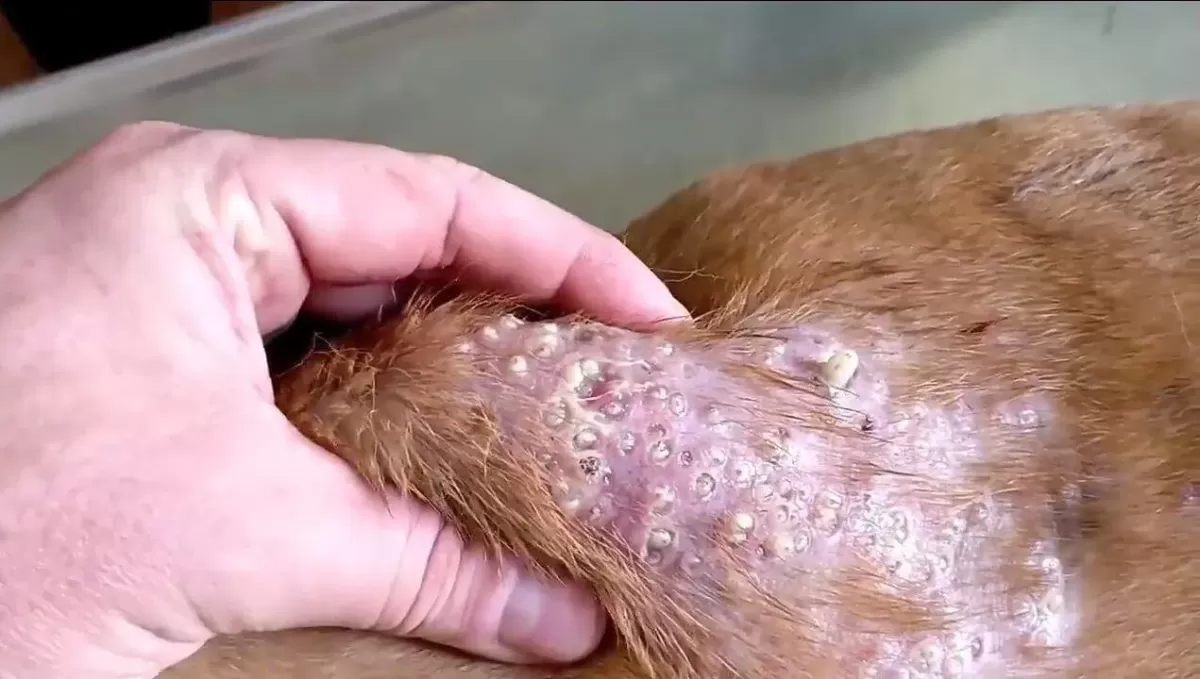
Symptoms of Maggots in Dogs
- The affected area may become swollen, red, and inflamed, indicating irritation or infection.
- Maggots can irritate the skin and lead to hair loss in the affected area.
- In severe cases, a maggot infestation may lead to weakness, emaciation, and a decline in overall health.
- Dogs with maggots may exhibit changes in behavior, such as lethargy, loss of appetite, or a reluctance to move or be touched.
What Causes Maggots in Dogs?
Maggots in dogs can be caused by various factors, and their presence is typically a sign of an underlying issue. Some common causes of maggots in dogs include:
- Wounds or injuries: Open wounds or injuries on a dog's skin can provide an entry point for flies to lay their eggs. Maggots can develop in and around these wounds if they are not properly cleaned and treated.
- Incontinence or urinary tract issues: Dogs with incontinence or urinary tract problems may have urine-soaked fur around their hind end, which can attract flies and lead to maggot infestations.
- Gastrointestinal issues: Certain gastrointestinal problems, such as rectal prolapse or anal gland issues, can result in fecal matter leaking from the rectum, which can attract flies and maggots.
- Reduced mobility: Dogs that are immobile or have difficulty moving may be unable to keep themselves clean, increasing the likelihood of feces accumulating and attracting flies.
- Neglect or abandonment: Dogs that are neglected or abandoned in unsanitary conditions are at a higher risk of developing maggot infestations due to poor living conditions and lack of care.
Home Treatment for Maggots in Dogs
If you suspect or discover maggots in your dog's fur or on their body, it's essential to address the situation promptly, as maggots can cause discomfort and health issues for your dog.
- Isolate Your Dog: Isolate your dog from the source of the infestation to prevent further exposure to maggots. Remove your dog from any unsanitary or contaminated environment.
- Remove Maggots: Gently remove the maggots from your dog's fur or skin. You can use blunt-edged tweezers or your fingers, but be very gentle to avoid causing additional harm or distress to your dog. Dispose of the maggots in a sealed bag or container.
- Clean the Affected Area: Thoroughly clean the affected area with warm water and mild soap. Use a clean cloth or cotton balls to gently clean the wound or area where the maggots were found. Be gentle to avoid causing pain or further injury.
- Apply Antiseptic: After cleaning, apply a pet-safe antiseptic or wound care ointment to the affected area. This will help prevent infection.
- Keep the Area Dry: Keep the affected area dry, as flies are attracted to moisture. If necessary, use a clean, dry bandage to cover the wound or affected area.
Keep a close eye on your dog for any signs of infection or worsening of the condition. If you notice any redness, swelling, or discharge, or if your dog seems to be in pain, consult a veterinarian immediately.
If you notice a significant infestation of maggots on your dog, it is crucial to seek immediate veterinary assistance. Handling or disrupting the maggots and their eggs can result in the release of enzymes and toxins that maggots use to decay and consume the animal's tissue. If these substances are released extensively into your dog's bloodstream, they can lead to further tissue damage and potentially induce shock.
How Vets Treat Maggots on Dogs?
Assessment and Diagnosis: The veterinarian will begin by examining the dog to assess the extent of the maggot infestation and identify any underlying health problems.
They will look for the source of the infestation, such as wounds, sores, or moist areas where flies may have laid eggs.
Stabilization: If the dog is in pain, shock, or distress due to the maggot infestation, the vet will provide immediate stabilization and pain relief. This may include administering pain medication, intravenous fluids, or other supportive care as needed.
Common Painkillers and Pain Management Medications for Dogs:
Non-Steroidal Anti-Inflammatory Drugs (NSAIDs): These drugs help manage pain and reduce inflammation. Common NSAIDs for dogs include:
- Carprofen
- Meloxicam
- Deracoxib
- Firocoxib
Maggot Removal: The vet will carefully and thoroughly remove all maggots from the dog's fur, skin, and wounds using appropriate techniques and tools.
This process may involve sedation or anesthesia to ensure the dog remains calm and pain-free during maggot removal.
Wound Care: Any wounds or sores where maggots were found will be cleaned and treated with antiseptic solutions to prevent infection.
Depending on the severity of the wounds, the vet may need to suture or close them if necessary.
Treatment for Underlying Issues: If the maggot infestation was caused by an underlying health problem, such as an open wound, injury, or skin infection, the vet will address and treat that issue.
Medications, antibiotics, or other treatments may be prescribed to manage or cure the underlying condition.
Common Antibiotics for Dogs:
- Amoxicillin
- Cephalexin
- Clavamox (Amoxicillin/Clavulanic Acid)
- Enrofloxacin
- Doxycycline
FAQs
Are Maggots in Dogs Contagious?
Maggots themselves are not contagious in the way that a contagious disease is spread from one dog to another. Maggots are the larvae of flies, and they develop in decaying organic matter, such as animal feces or wounds. When maggots are found on a dog, it's typically because flies have laid their eggs in a specific location on or around the dog, such as in an open wound or in soiled fur.
However, the presence of maggots on a dog can be a sign of an underlying issue, such as poor hygiene, untreated wounds, or skin problems. These underlying issues may potentially be contagious if they involve infectious agents like bacteria. For example, if a dog has an untreated wound that becomes infected and attracts flies, the resulting maggots may be a sign of that infection.
Can Maggots Be Harmful to Dogs?
Yes, maggots can be harmful to dogs under certain circumstances. If maggots are not promptly addressed, they can lead to secondary health problems, such as skin infections, sepsis, or systemic illness.
Conclusion
Maggots in dogs can be a painful and potentially life-threatening condition if left untreated. Owners should be vigilant in maintaining their dog's hygiene, promptly addressing wounds or underlying health issues, and seeking veterinary care at the first sign of maggot infestation. By taking preventive measures and providing proper care, you can help ensure your canine companion remains healthy and maggot-free.
You May Also Like
View all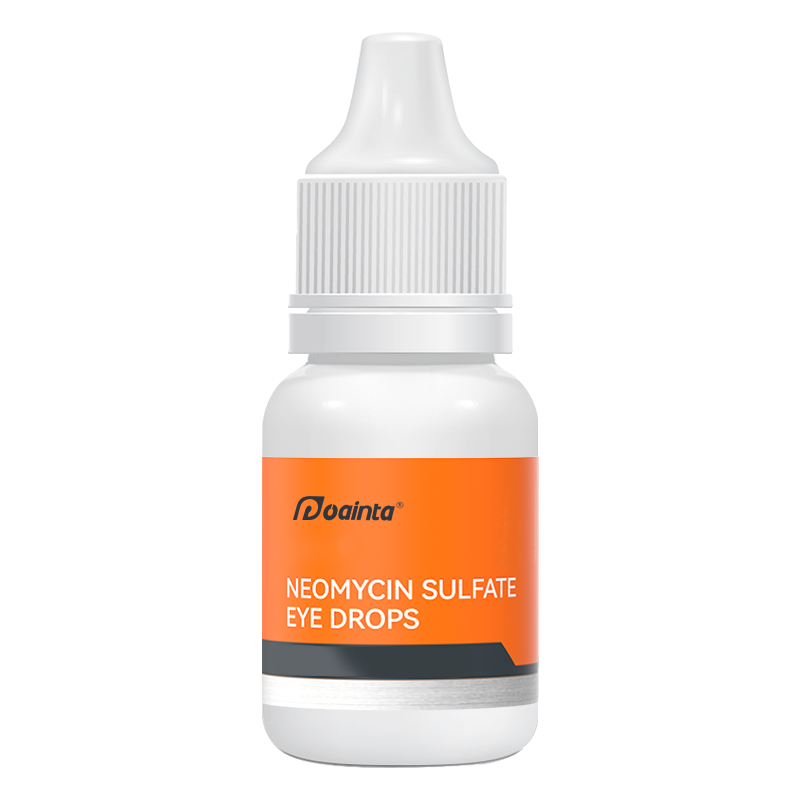
Puainta® Eye Drops for Dog Allergies and Cats Conjunctivitis

Puainta® Dog/ Cats Ear Cleaner Solution
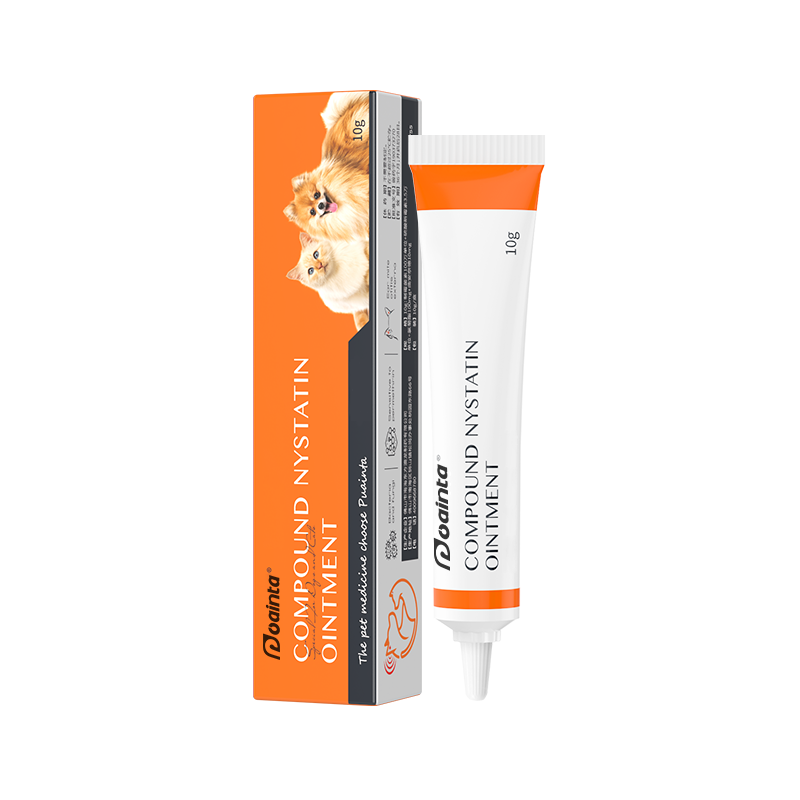
Puainta® Ointment for Ear Mites & Otitis

Puainta®Fenbendazole Tablets Dewormer
Join The Puainta
Become one of pet parents and get professional tips, immediate product info, updated promotions and discounts, and more surprises from us!





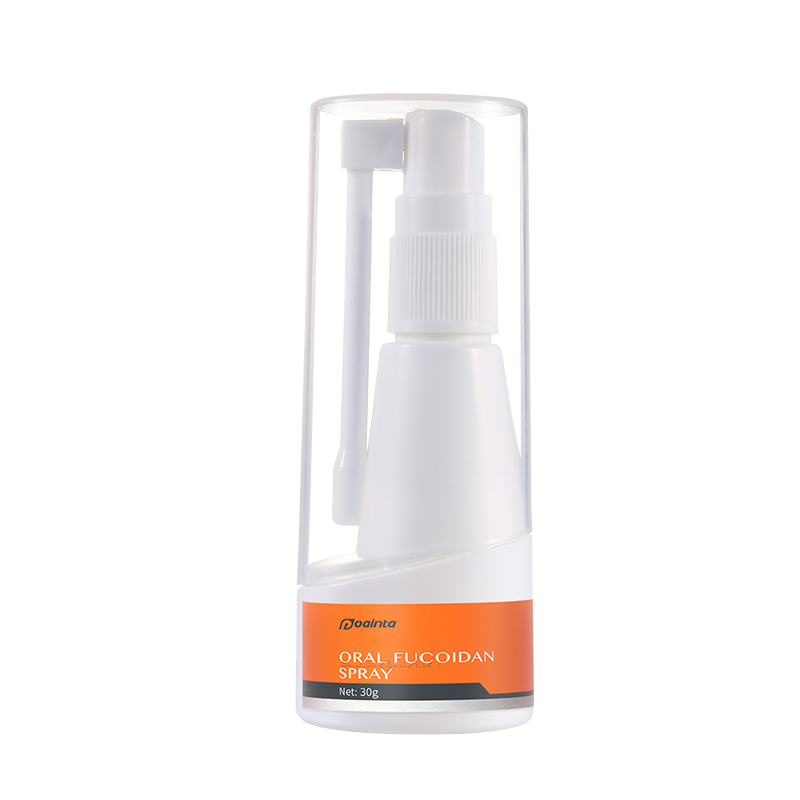

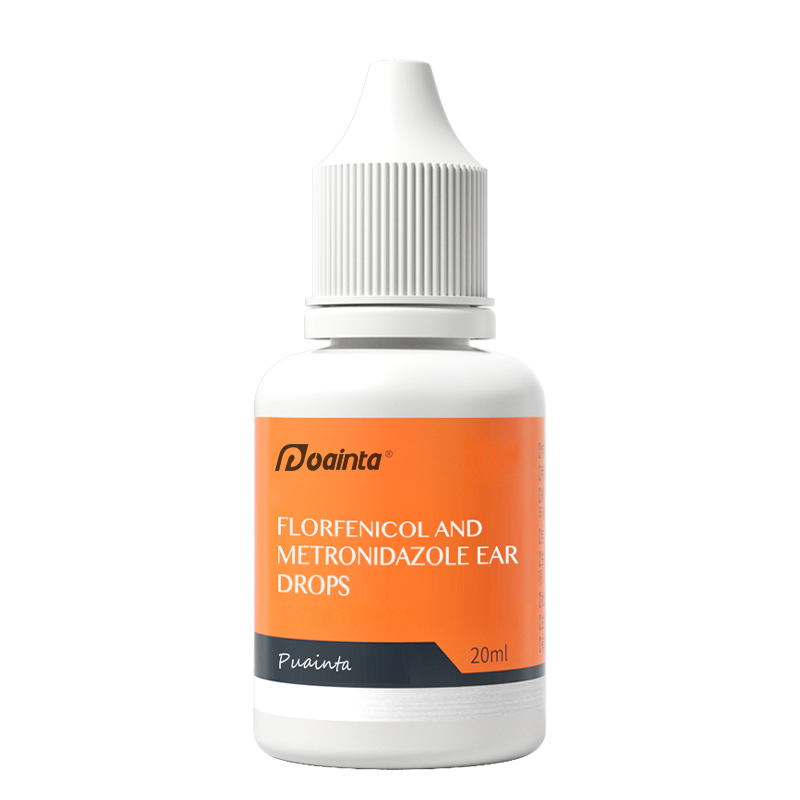
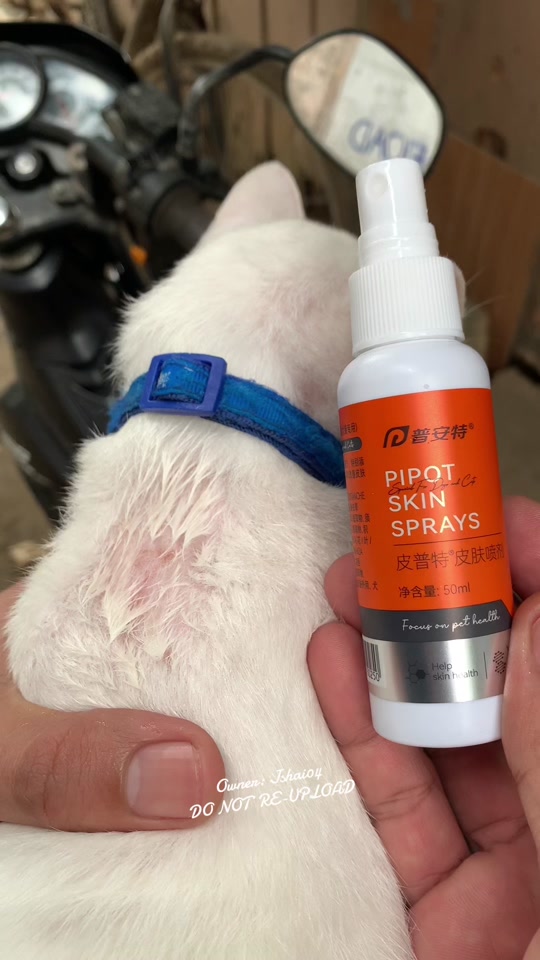













This site is protected by reCAPTCHA and the Google Privacy Policy and Terms of Service apply.